Rita Moreno Is Unbreakable
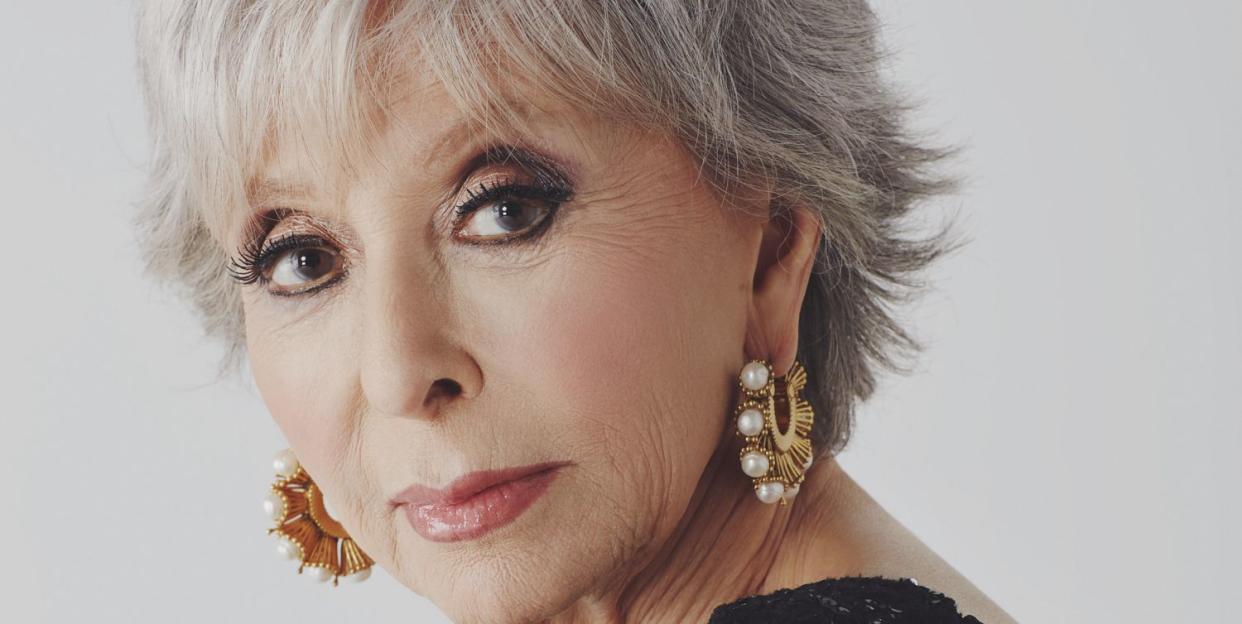

They say you should never meet your idols. Whoever said that has never met Rita Moreno.
The first time I met Rita was at a fancy dinner event. You know, the kind with lots of round tables and clinking glasses and big names and mediocre catering. And even in a room full of power-players there was a different, magical kind of energy around Rita. You can’t not know she’s in the room. Eyes are pulled in her direction like magnets. She just has that “thing.”
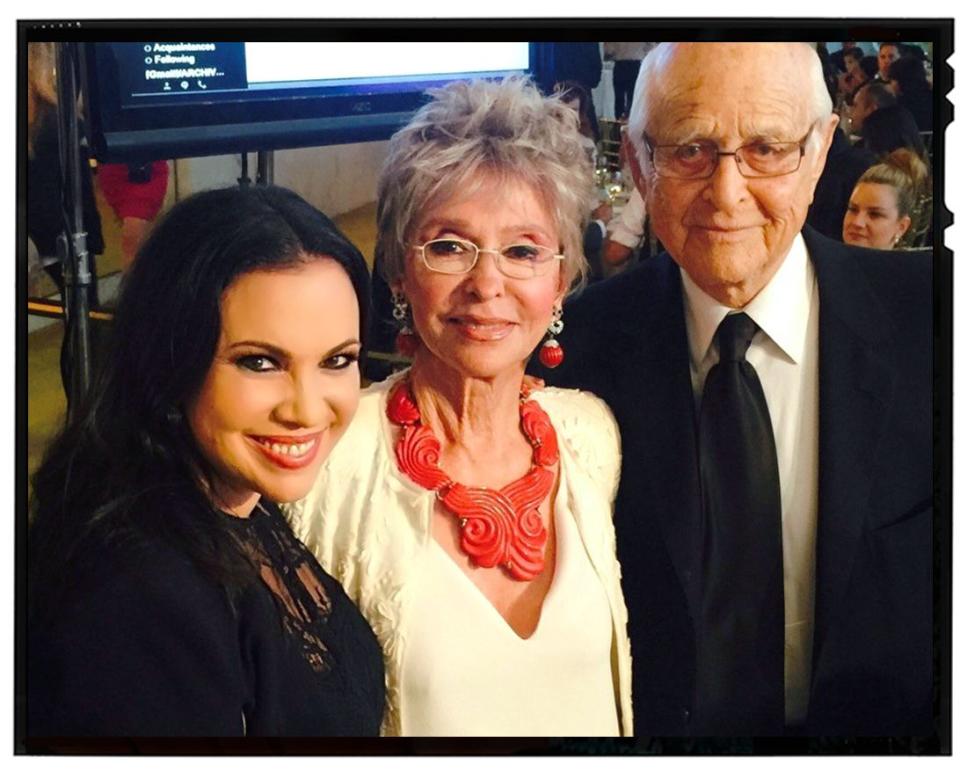
I didn’t know Rita would be at this dinner. But it felt like kismet. After 10 years as a working comedy writer-an achievement for anyone in the business, much less a Latinx woman-I was finally getting the chance to tell my own story on screen. I was working with Norman Lear to reimagine his 1975 comedy One Day at a Time (with Mike Royce) by infusing it with stories from my own Cuban-American upbringing. And literally since the moment I first saw Rita on screen she reminded me of my mom. So much so that when I’d describe my mother to people I’d say, “My mom, picture Rita Moreno…” then continue to tell the story. In fact, this is what I told Norman when telling him stories about my family. And he said he’d always wanted to work with Rita. Norman knew Rita, and he brought me as his guest that night. And when I saw that she was there I couldn’t believe it. I knew this was an opportunity to make sure Rita played my mother on the show. She just HAD to.
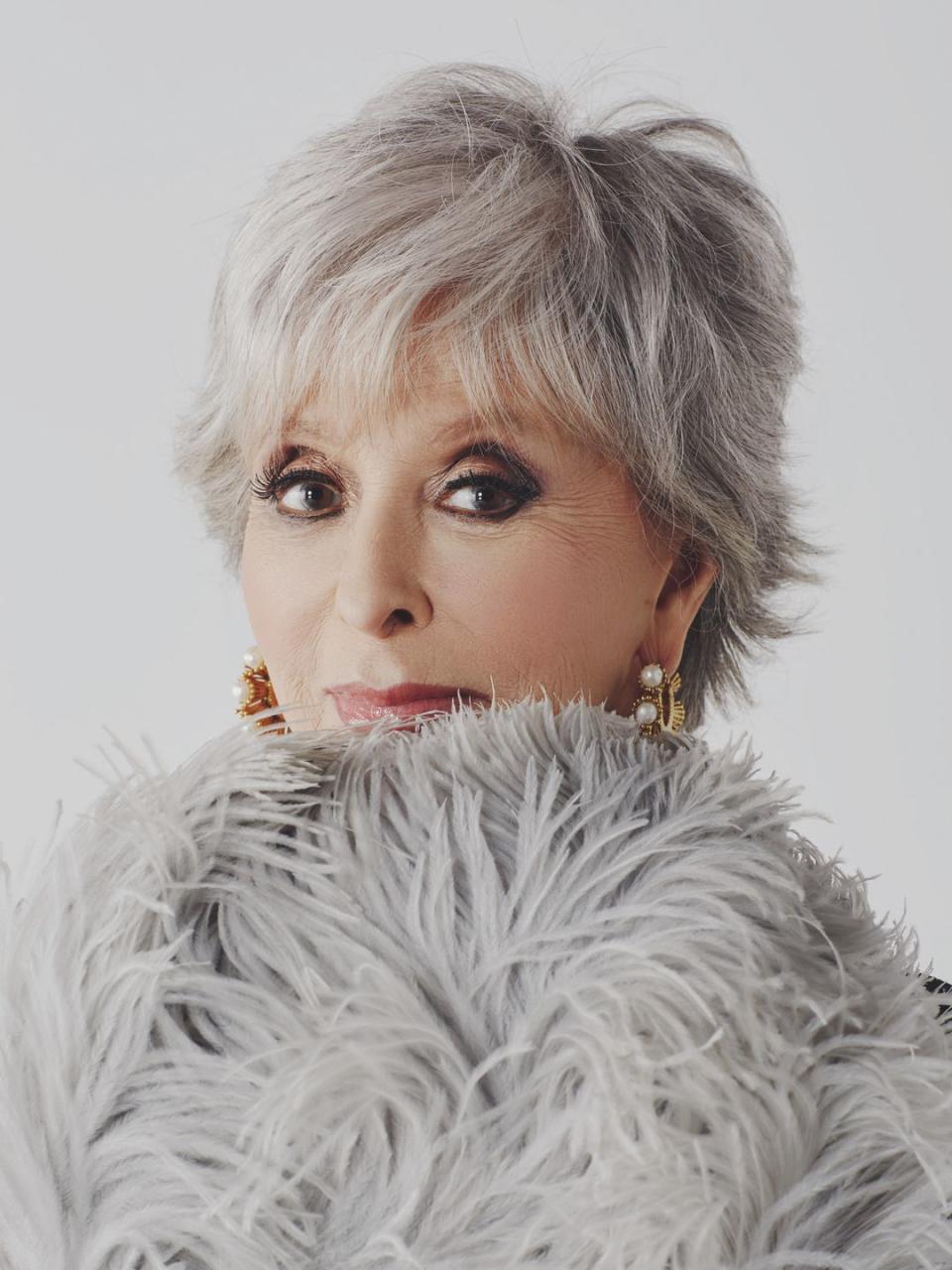
Norman introduced us. He told her we’d like to work with her. She was funny, sexy, self-deprecating. She said, “That sounds just wonderful. Let’s talk more.” I nearly fainted. Was this really happening? A few weeks later, she agreed to play Lydia Riera, a larger-than-life amalgam of my mother and grandmother. (My grandmother’s maiden name was Lydia Riera.) What Rita has done with Lydia, a character I knew so intimately and cared about so deeply, is nothing short of astonishing. She made it her own, because she’s Rita Moreno after all.
Rita has always been an idol to me-a stunning, badass Latina who took Hollywood by storm at a time when all the odds were stacked against her. She starred in movies. Big ones. Major motion pictures. She dated Elvis. She had a long relationship with Marlon Brando. Louis B. Mayer called her the “Hispanic Elizabeth Taylor.” She’s won all of the awards. And I mean all of them-she’s one of only 15 people in the world to EGOT! She IS goals. The idea of her is all larger than life.
But when you see someone as a legend, it can prevent you from seeing them as human. I’ve worked alongside Rita for three years now. It took time for me to see her fully as who she is. But once I did, I discovered a woman who is deeply human: delicate but strong, sensitive but a fighter through-and-through, and with a wit and charm that one can only be born with. I discovered someone who meant more to me than a legend. And now, to the bewilderment of my younger self, Rita Moreno is my friend.
So, if you ever do meet your idol, I hope that they’re half as lovely as Rita Moreno.

To me and so many other people on this planet, you are a legend. But getting to know the woman Rita Moreno has been so much more delicious. Because when somebody is a legend, they're not really human. It obscures all the wonderful human intricacies of who they are. Instead, you put all of your hopes and dreams on that person.
You know what? That's usually such a burden on the so-called legend. Because you can see people looking at you in a very different way than they would look at others. And it's kind of bizarre, because that’s not what I am. I am not the legend.
But you are! I've seen people start weeping when they meet you. How do you reconcile that?
You know what? I’ll tell you a story. Quite a while ago, I was being interviewed on television and I was asked about my suicide attempt. I spoke about it very honestly because I feel it's like a service to people who are feeling horrific and sad and all that kind of stuff. So I was talking about it honestly and simply, and I said something to the order of, "If there are any of you watching who are contemplating such a thing, please, I beg you, think about your mom, your child. Call somebody, call anybody. It is not something I did and wish I had, but it didn't even occur to me because I was so horribly miserable, and all I could think of was my pain. It makes no a difference whether it's a priest or an uncle or someone who runs the grocery store, just talk to somebody."

About two months later I was in the lobby of the Waldorf Astoria. As I'm walking in, I see a woman way down at the other end of the lobby jump up and down and wave at me. I go to greet her and I thought, Oh she's a fan. Then she falls on me and starts to weep. And she keeps saying, "Thank you, thank you, thank you," and I have no idea what she's talking about. So I thought I'd just hold her, I'll embrace her. Something dreadful has happened to her. I wasn't in a hurry or anything, so I held her. She finally calms down and says, "I watched you on that television show, and I was contemplating taking my life, and I can never, ever thank you enough for speaking to me."
And then I start to cry. So you're asking, how does it feel? It's a huge responsibility and I'm very, very, very cognizant of that at all times. I think of myself as a kind person, and that's very important to me, because a lot of people were not kind to me. It's something that's always on my mind, you know? I need to always be in touch with my humanity.
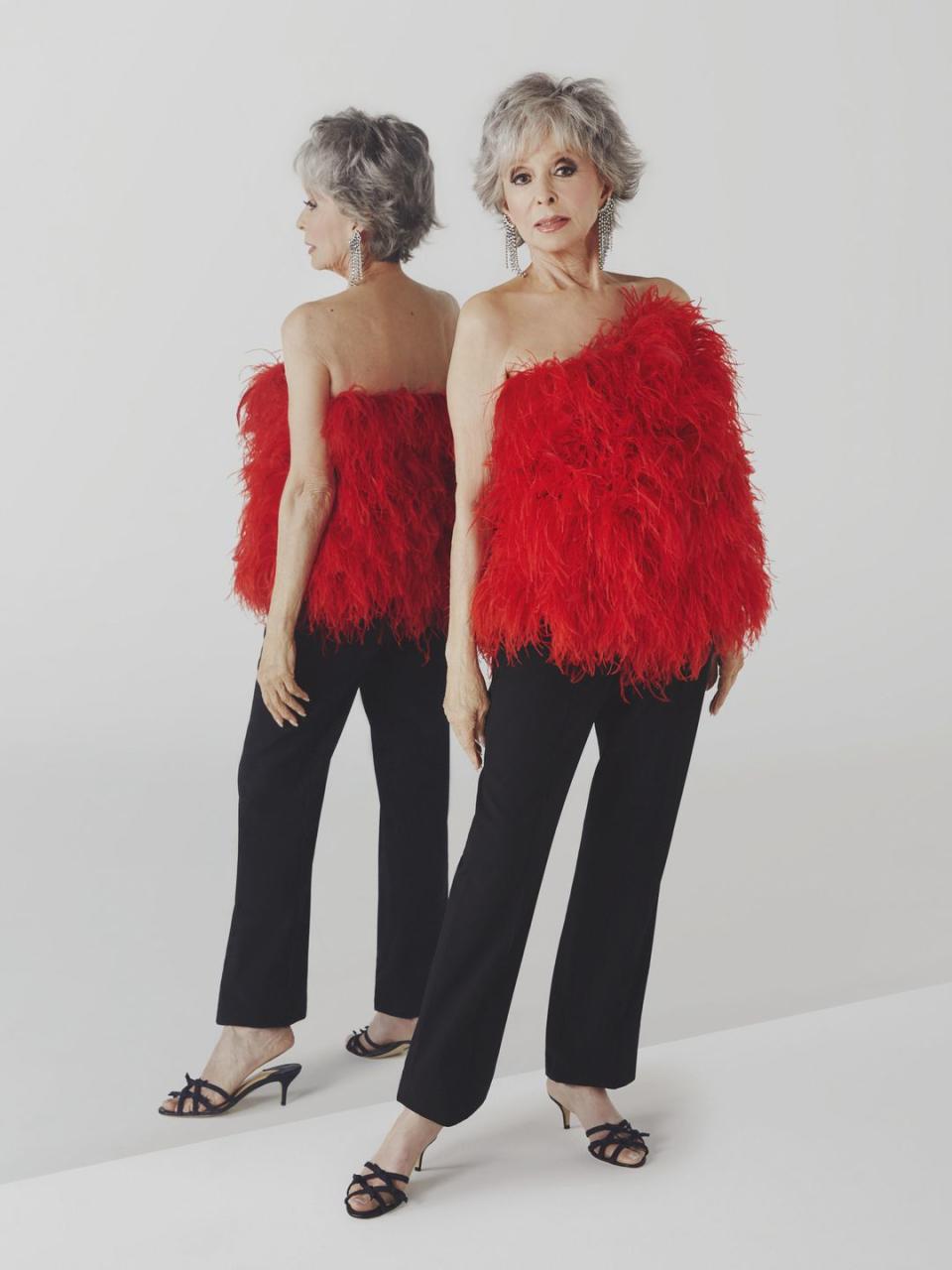
I'd love for you to talk about coming from Puerto Rico and your journey here. Where did you get the strength to persevere through that?
I think that some people are genetically just strong. I really believe that my mom was like that. On the other hand, maybe you're forced to be that way because you realize you're either going to sink or swim, and the choice you make determines the kind of person you become. But I think I did get it from my mom. She had enormous fortitude. My god, she came to this country on her own, on a ship. She was a young woman, she doesn't speak English. She finds herself a job sewing in a sweatshop, like many Puerto Rican women. I have some of those genes. Though I think I fell apart much more often than she did, but then that's because I had some advantages, and when you have some advantages, you become more sensitive to disadvantages.
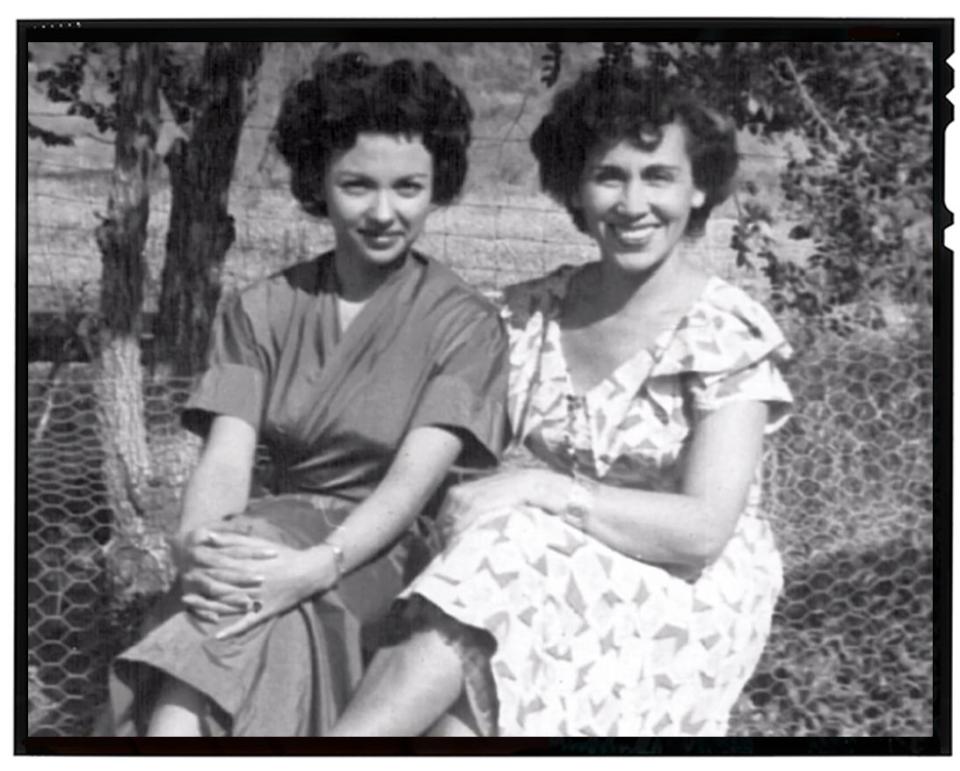
You’ve said because your mom was very young, in a way you two were more like girlfriends? For many people that don't know, there's a beautiful photo of you and your mom in the opening credits of One Day At A Time-and you look like sisters.
She was very young. She had me when she was 17. I don't even know if she was married at the time. And you know, I subsequently found out some dreadfully sad things, which she wouldn't tell me for years and years and years and years because she was so ashamed. But apparently, her brothers abused her sexually. She wouldn’t say what, but she mentioned a bottle. I think of all that more and more every day, because I do think about death now. I'm in the third act of my life and it's very important for me to be realistic and face things. I'm constantly saying to Fernanda [my daughter], "If there's anything you need to say to me, say it now. Don't spend your life regretting that you didn't share something with me.”
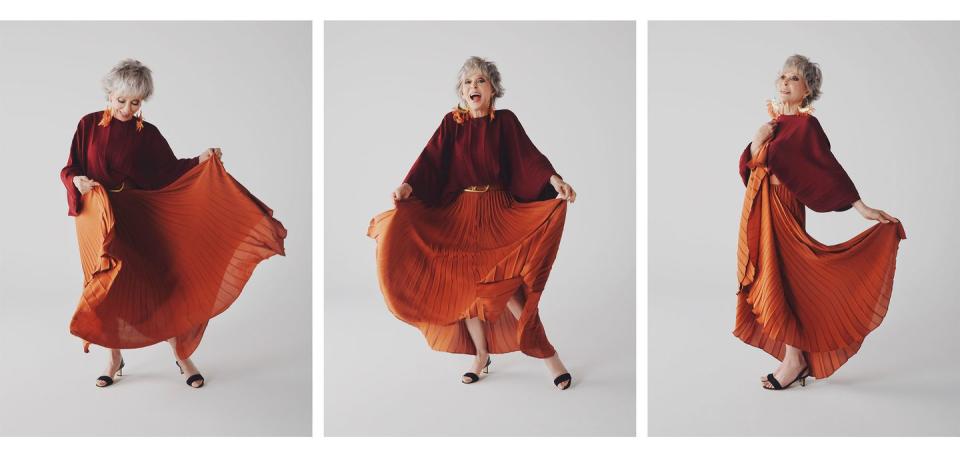
Was there anything that you didn't get to say to your mom before she died, that you wanted to say to her?
Tons of things, tons of things. How much I loved her. I mean, I did, and I showed it by doing things for her, but she was also married to a real terrible man in her last marriage. A Jon Burge type, and I just wish that I had been able to move her into my house. But I knew that my husband would just not live with that. You know, that’s such a Latino thing, where you have-
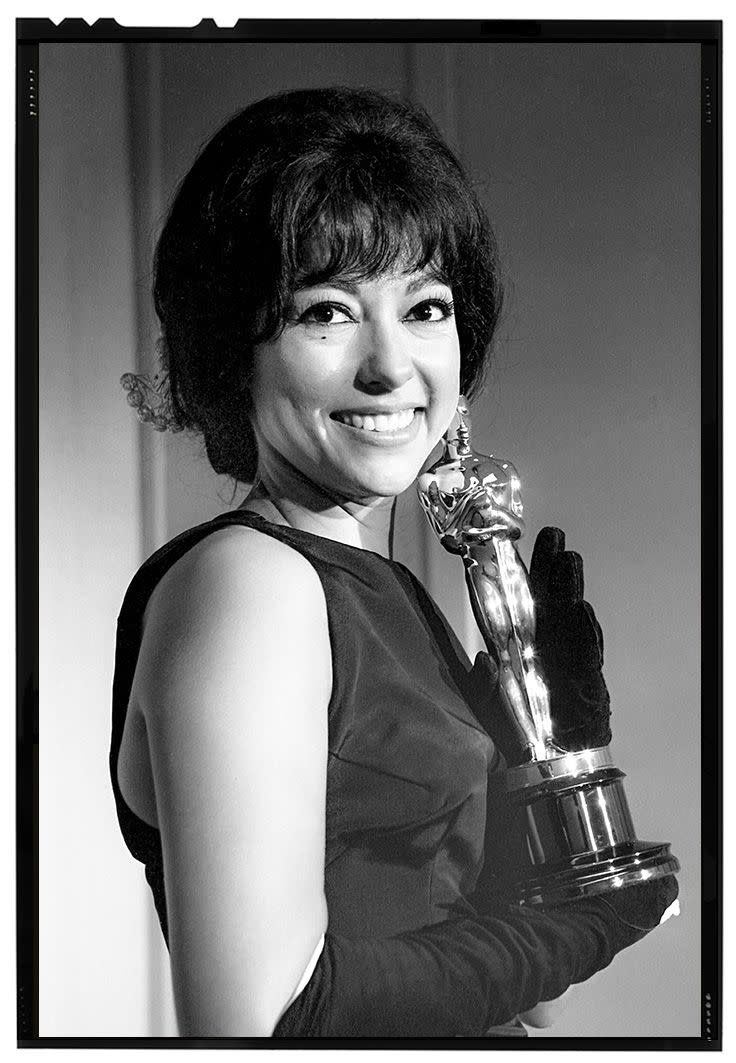
Yeah, I know what you’re going to say. I grew up with my grandma and grandpa. Abuelo and Abuela lived with us until I went off to college.
And that's what I wanted to do with my mom, to get rid of her terrible husband. But it just wasn't meant to be, so I took care of them by bringing them here, up north from L.A., and put them into a senior home very near where I live now. It was really a nice one and all that, but that's not really what she wanted. I miss her so much. The older I get the more I miss her. I feel that I could have done more for her. When I was a little girl, I would say in Spanish, "When I'm a big movie star, I'm going to buy you a house, I'm going to buy you a car, and I'm going to buy you a mink coat." I bought her a house eventually, and I bought her a car. But I didn't buy the mink coat. I didn’t want to kill an animal. [Laughs]
She must have been so proud of you though, Rita, my god.
I'm sure you've seen the moment when they call my name in the [1962] Oscars. She's right behind me, and she grabs me and hugs me. It's so brief when she does that, that you really have to see it several times, but that's my mommy.
You’ve said you wanted to be a movie star for as long as you can remember. Where do you think that came from?
I think some things are constitutional factors. I was dancing and entertaining from the time I was a little girl. I would dance for Justino, my grandpa, and he would say, "Rosinita"-that's what he called me, which I love-"Rosinita, un bailecito, una rhumba." And he would put on a record, and I'd shake my little booty all over the living room of our tiny little house. I loved the attention. I remember thinking to myself, This is nice. I'm being loved just because I'm shaking my little booty? Wow.
You’re made with certain genes, and my mother was a very joyful person. She loved parties, she loved to dance, and she would take the occasional shot of rum down her throat. She was always making wonderful dinners and stuff like that, she was just a marvelous person. Of course, she beat the shit out me sometimes. But that's how you are when you come from those kind of countries.

Right, that’s how you grew up.
It's funny because that's one thing I never really forgave her for. She would take a strap and smack me on the legs when she was unhappy about something that I had done or said. Or she would rap me on the head with her knuckles, which was such a loss of dignity. There was something so crude about that, and I was a very sensitive little girl. These things still stay with me, and I mean, Jesus, I’m 87.
Your rise is pretty amazing, because there were not, I’m assuming, a lot of Latinas trying to come up. Did you see many other women of color growing up?
This was before the Puerto Rican diaspora, so when my mom dropped me off at Kindergarten, there were no Latin kids. I mean, not one in my class-not one.
So what did the kids make of you?
I couldn't even tell you. I don't know. All they knew was that there was this little girl who cried a lot, and that she didn't speak English. It's probably why I learned English so quickly and I learned it well. Because I had to be able to express myself. It's one of the reasons I've always treasured language. I speak better English than a lot of Americans.
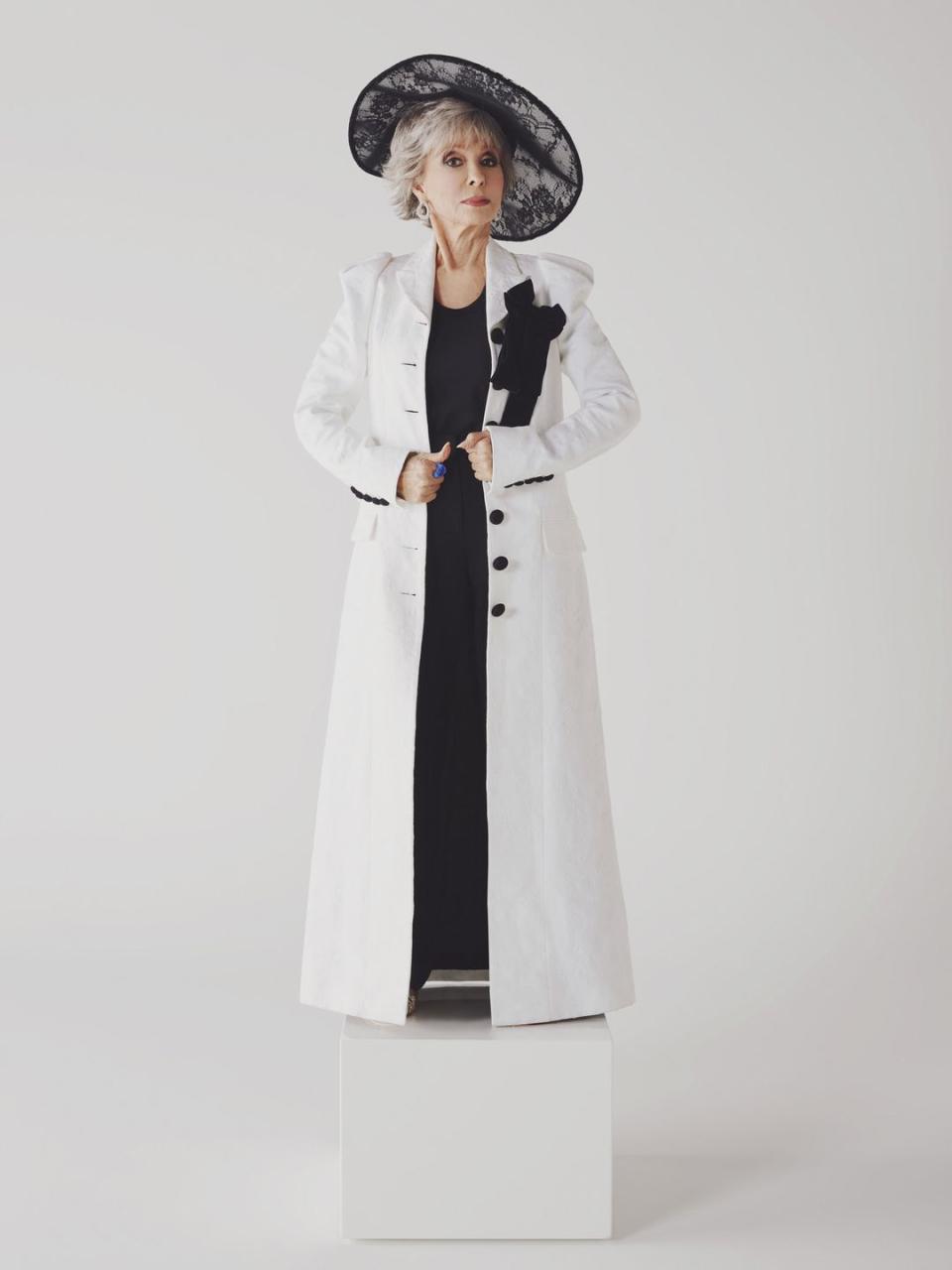
When you were auditioning, I'd imagine there weren’t a lot of other Puerto Rican girls at those rooms with you. Were your first auditions for Caucasian roles?
Here's how you did things in that time, when you wanted to get an agent or you wanted to get a job: I’d put on my flat shoes and I’d literally walk and visit these little agencies. I was 13, 14, 15 and I would go there, meet the receptionist, and I’d say, "I would like to leave my picture and my resume with you.” I think the resume was about two sentences. Once in a while, I would get a gig dancing, and little by little, some of the agencies began to know me. And eventually that led to being in my very first movie, So Young, So Bad-the title of which my agent could never get right. It was so embarrassing. He’d say, “Oh yeah, yeah, she did this movie, So Good, So Bad, So Young.” He was very short and he had a pointy head. He was called Bullets Durgom.
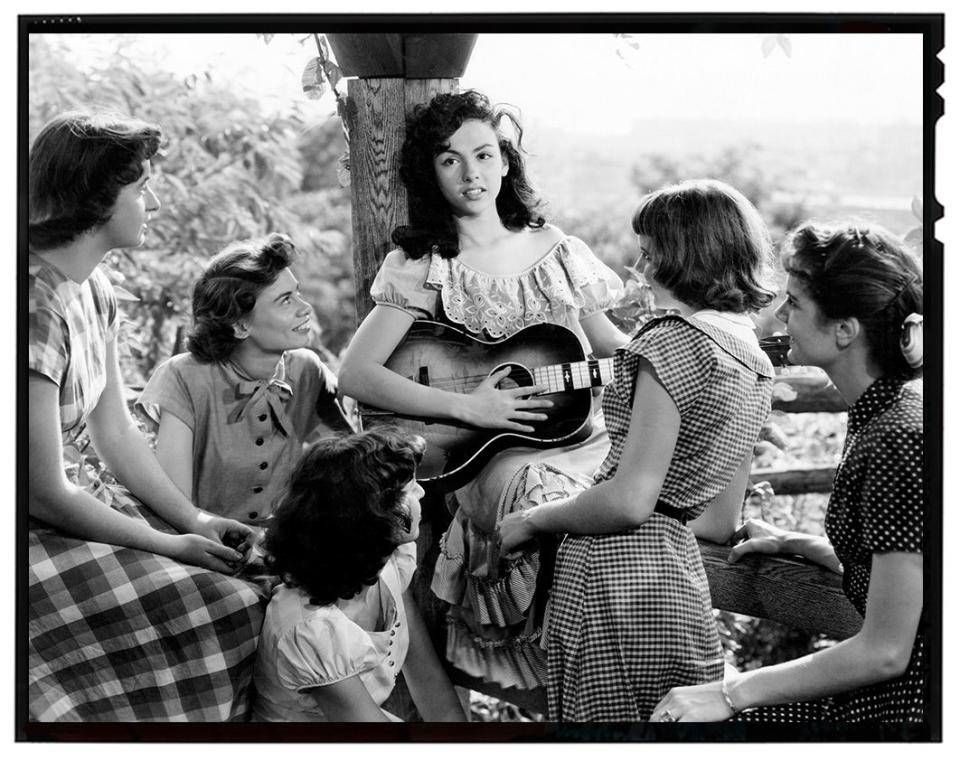
So you finally get a movie- then what do you do? What’s your journey?
A talent scout saw me perform in a recital that my dancing school had put together. And the audience, of course, was comprised of nothing but relatives. I mean, who else is going to go? But this guy was a very wise fellow. He was going to these things because you never know who you're going to see. He saw me do my Spanish dance with castanets, and he came backstage afterward, found my mom, gave her his card, and he said, "The time isn't right just now, but I will be in touch with you now and then because I think Rosita has a future." I’ve never forgotten his name: Dudley Wilkinson. And that’s how it started. At first he couldn’t call because we didn’t have a phone. We couldn’t afford it. But when we got a phone, my mom called him and gave him our phone number, and he called about six or eight months later. He said, "Louis B. Mayer is coming into town."-This is the man who ran MGM Studios, Metro, Goldwyn, Mayer-"And I would like Rosita to come meet him."

An appointment was made: we were going to see him at the Waldorf Astoria Hotel, and the funny thing is, we’d never even heard of that hotel. I mean, you never leave your neighborhood, right? So we go to the desk and [my mom] says, "I want to see Louis B. Mayer." And the man looked very, very nastily at us, as though we were the rabble. He said, "He's in the penthouse." She said, "The penthouse, but what is that?" And he said, "When you get into the elevator, you just look for PH. You understand PH?" She said, "Yes.” So we get into the elevator and she looks for PH and presses the button, and it opens up into the man’s Penthouse. And there he is, all five- feet-four of him. He was like the wizard in the Wizard of Oz.
I chose Elizabeth Taylor as my role model because she was kind of my age and I did my best to look like her: the hairdo, the eyebrows, all of that. I had been costumed by my mom, padded on my chest-you know, just all fixed up. And he takes my hand, he talks to me for a few minutes, and then he says, "My god, she looks like a Spanish Elizabeth Taylor!" Ta-dum! Six months later I was in Hollywood. My mom rented a little cottage in Culver City, where MGM was, because we didn't drive.
Would you walk to the studio?
I walked to the fucking studio, and it was killing me. We were pretty close, but it was still a long walk. We finally got a little car, a really old little rattletrap, but at least I could drive to the studio.
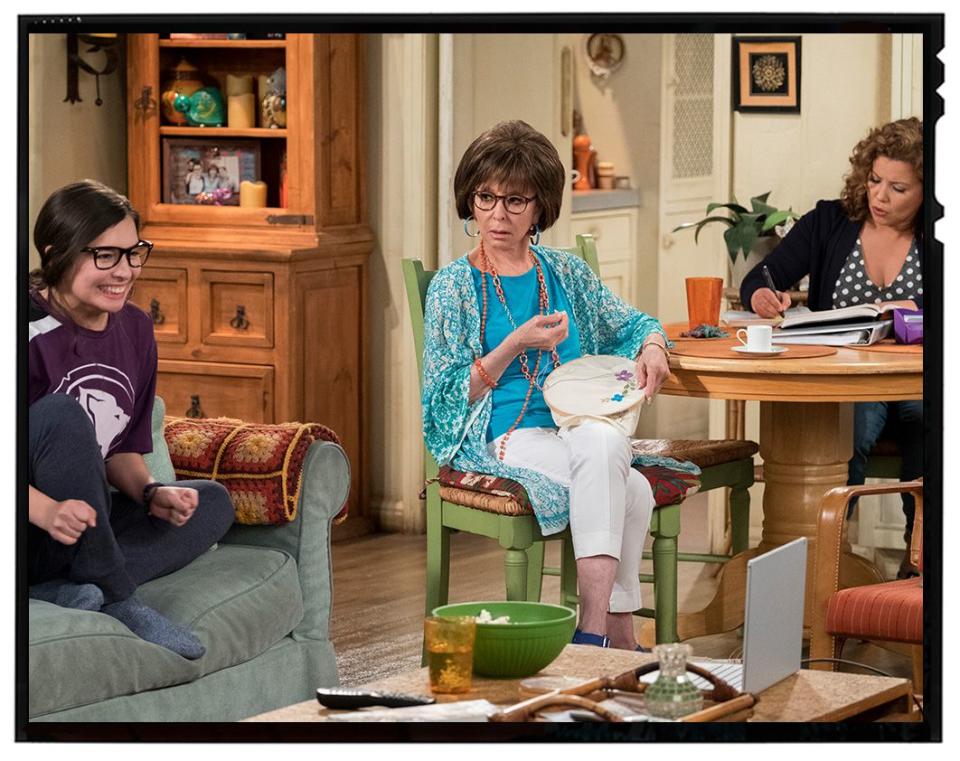
It’s crazy that that's now the studio where we shoot One Day At a Time.
Yes, of course, it's crazy! When I went there for our first day at read, I immediately looked up at stage 25 because that's where all the musical numbers were done at MGM. I mean, you want to talk about déjà vu.
When I watch movies, I see you in everything. I was watching Singin' in the Rain going, "Oh my god, there's Rita!"
And that was a very meaningful movie for me because I was playing a non-ethnic character, which I could attribute to Gene Kelly. Gene was a very political guy, and as far as he was concerned, people didn't have color. And so I played Zelda Zander, the movie star. I just had, I think, about three or four scenes, so I spent almost every single day visiting the set, to see my hero. This little Puerto Rican girl, because that’s how I saw myself.
I have to tell you that when I got my very first fan letter, I wrote back a 10-page letter telling her all the wonderful things I felt, and how thrilling it was, and all that kind of stuff. Because there was nobody to tell it to! That's in a box somewhere. Somebody needs to find that letter. I'd love to read it.
In your autobiography, you write about how, even after you won the Academy Award, the parts you were offered were still stereotypes.
Oh my god, that was heartbreaking. Not only did I get the Academy Award, I got the Golden Globe too. And then I did not do another movie for seven years. Mostly because I turned down gang stuff, where it was West Side Story in the most horrible way. But, by the way, I wasn't being offered much of that either. It's not like producers were knocking my door down for me to do a gang movie. So I said, "No, I have an Oscar now, I have a Golden Globe, and I am not going to do this anymore." And ha-ha, I showed them-I didn't do a movie for seven years. The first movie I did after that was Popi, a movie with Alan Arkin.
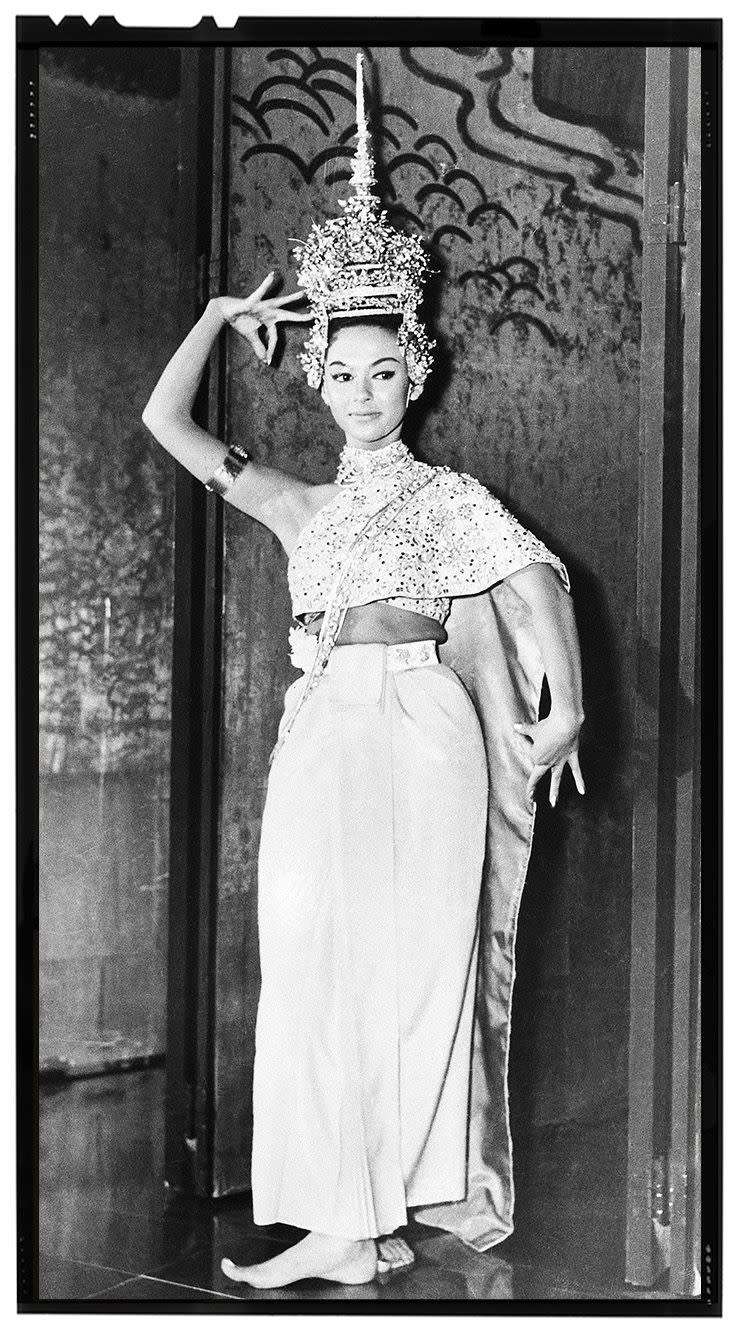
And that wasn't that long ago! They had you playing different ethnicities, like the native girl or playing Asian as Tuptim in The King and I.
Oh, I'll tell you a story about Tuptim. What happened with Tuptim was that I was now on the contract to Fox. You know how you kill yourself trying to get jobs? This one was simple: I was on the cover of LIFE magazine and [Fox studio head] Darryl F. Zanuck said, "Who is that girl? Get me that girl." I mean it, this business is crazy. Anyway, when I was on contract to Fox, they were going to do The King and I, and they told me they wanted me to test for the part of Tuptim. And I was like, "Fine, okay." I studied the part and went in to test. There were other girls in the room testing for Tuptim too, one of whom was perfect, absolutely perfect for the role. It was a girl named France Nuyen-beautiful, gorgeous, she still is-who was Vietnamese and French. I thought, Oh well, she's going to get it, as she should. But I did my test, and guess who got the part? Me. And I've always felt guilty about that because I knew she really should have gotten it. But I got it because I was a contract player.
How do you react to #MeToo and Time’s Up, having really lived through the thick of men behaving badly in Hollywood?
I am so thrilled that this has happened-and that this has happened in my lifetime, you know? Let's face it, I am in the third act of my life here, and when I see a young woman acting in a way that says, "I have value, I am worthy,” it just moves to me to tears because I never thought I would see that day happen. So even though it didn't happen for me, it's happening now, and I am thrilled. But I'm still envious of these young women too. I think, I could have been that, but I didn't get the break.
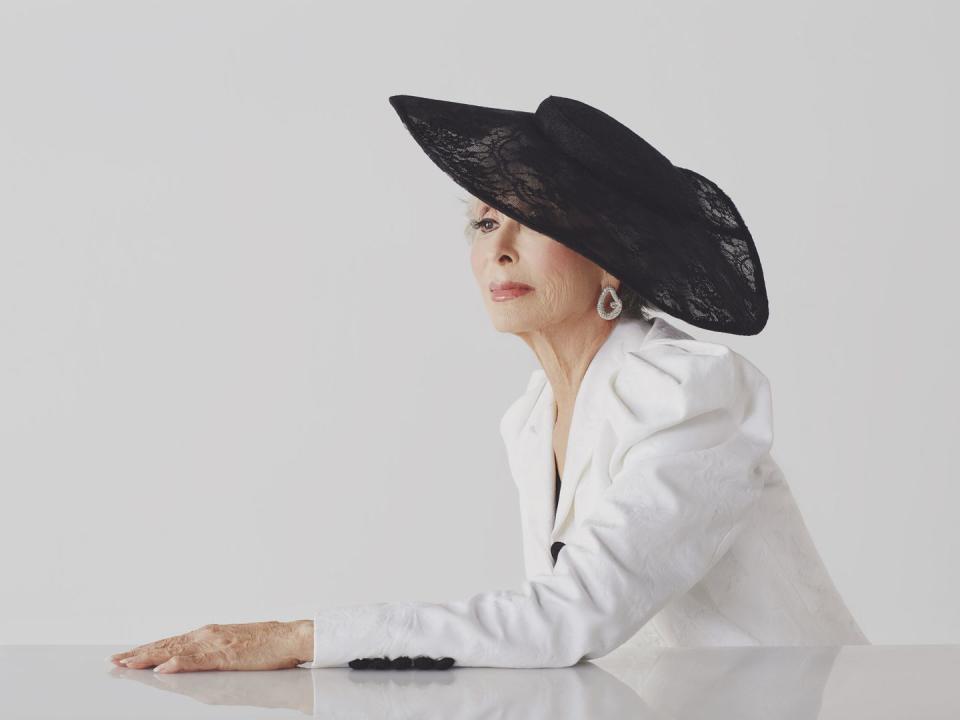
It's amazing to hear somebody with your incredible body of work still feel that way. Because you do have a tremendous body of work.
I do, but you have to search for it a little bit, you know? It’s not like I was doing movies every two minutes. I wasn’t. And what was always so heartbreaking to me was this: I'd be out of work for quite some time, and I'd get so depressed and sad, and then my agent would call and say, "I'm sending you a script." And I'd be so happy-for about two hours. Because then I'd read the script, and the character is some girl who can barely speak English. Again.
And I remember when I was in my sixties, I went to see a director thinking that I was going to read for one part, but it turned out to be for another part. They wanted me to audition for a Mexican whorehouse madam who has three lines of dialogue, in Spanish. I was in my sixties and I had won all those wonderful awards! And I was still followed by this kind of thing a good part of my life. It broke my heart!
I got to see Norman Lear for the first time when I auditioned for P.O.P. [an ultimately failed pilot in 1984]. I didn’t know him, but he knew of me. And he said, "What are you doing here?" I said, "I'm here to read for the part of [Charlie Durney's] wife." And he looks at me, because I've never looked my age anyway, and he says, "You could never be Charlie Durney's wife. You look way too young. " I said, "But I'm 60." He said, "Honey, goodbye. No." He was very kind, very sweet. But then I spent an hour in my car just crying because I hadn't done anything for a couple of years.
You once wrote that your agents didn't want you to do the children’s television show The Electric Company. And that's how I first saw you on screen! I was so struck by how you looked like my mom, like somebody from my family. To see one of my people on TV, teaching me how to read? It felt incredible.
Well, I used to watch Sesame Street with Fernanda, and Fernanda was one of those reluctant readers-she just wasn't interested. But she loved Sesame Street, so we watched that together every single day. I would sit on one of her tiny chairs with her, and we'd watch the Electric Company.
At 87, what are you most proud of?
That I’m still employed.
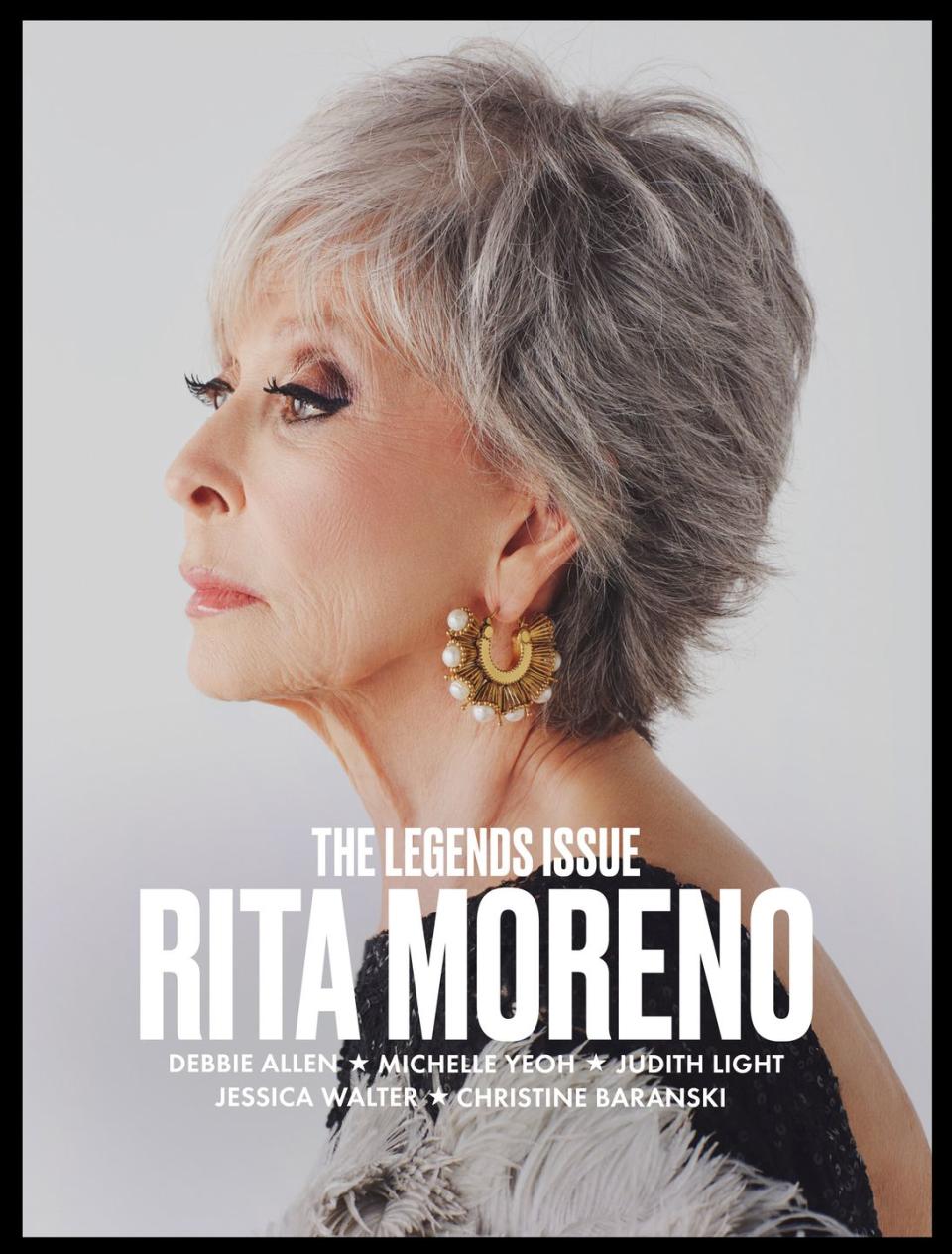
Cinematography by Robert Mroczko | Style Editor Tiffany Reid | Hair and Makeup by Kristen Bacino | Video Production by Rachel Liberman | Production by Oona Wally, Suze Lee, & Sameet Sharma
('You Might Also Like',)

